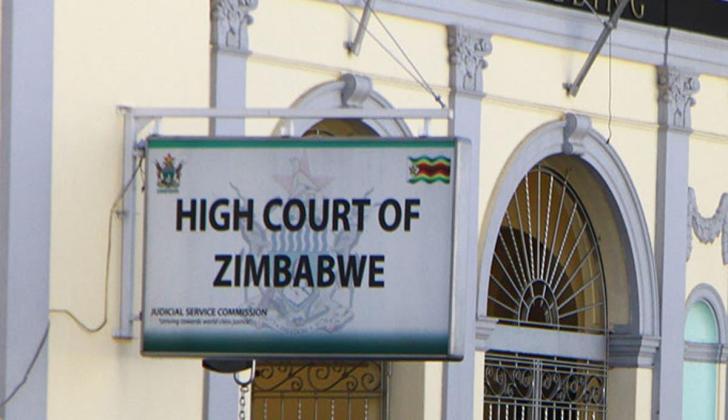News / National
Mnangagwa's govt in soup over unsanctioned US$500m 'loan'
29 Oct 2024 at 07:44hrs |
0 Views

A local citizen, Marvelous Khumalo, has taken the Zimbabwean government to court, demanding the repayment of over half a billion United States dollars allegedly misappropriated through unauthorized borrowing by the Ministry of Finance, Economic Development, and Investment Promotion from the Sustainable Livelihood Fund.
Khumalo filed his application in the High Court, seeking to compel the ministers of Public Service, Labour and Social Welfare, as well as Higher and Tertiary Education, Science and Technology Development, to reimburse the funds. His case relies on Section 116(9) of the Public Finance Management Act, which mandates that ministers must repay money borrowed from relevant statutory funds.
Represented by the Zimbabwe Lawyers for Human Rights, Khumalo argued that it is his duty to ensure adherence to the Constitution, particularly regarding public financial management principles that promote transparency and accountability, and prevent corruption.
Khumalo's claim centers on a series of unauthorized loans taken from the Sustainable Livelihood Fund. He detailed that in 2021, the Public Service minister borrowed ZWL$39,664,164 from the fund, followed by ZWL$106,186,447 in 2022, and ZWL$369,807,375 in 2023. Additionally, he stated that the same ministry borrowed ZWL$3,544,915 from the Child Welfare Fund in 2021, which remains unpaid. In 2022, another ZWL$153,648 was borrowed from the Older Persons Fund, with outstanding amounts still noted as of September 2023.
Khumalo also pointed out that the Higher Education ministry borrowed ZWL$5,250 from the Industrial Training and Trade Testing Fund in 2019, as well as ZWL$2,123,558 from the Skilled Manpower Trade Testing and Certification Fund in 2020, all without the necessary approval from the Treasury, in violation of the Public Finance Management (Treasury Instructions) Act of 2019.
According to Khumalo, Section 116 of this act prohibits accounting officers from borrowing from their ministries' funds for financing appropriation budgets without prior written authority from the Treasury. He contended that the unauthorized borrowing had not only violated this provision but also undermined the principles of transparency in public financial management.
"The failure by the respondents to seek prior approval of Treasury before borrowing from the funds is clearly against the principle of transparency and is unlawful," Khumalo stated. He also referenced the Auditor-General's report, which raised concerns about the concealment of overspending by the ministries due to unauthorized borrowing.
Khumalo emphasized that statutory funds, such as the Child Welfare Fund, are established for specific mandates, and the failure to reimburse borrowed money could prevent these funds from meeting their objectives.
Khumalo expressed that he had no alternative remedy, as the ministers are the only officials who can rectify the situation by seeking the necessary authority and ensuring that the borrowed funds are reimbursed. The case is currently pending before the High Court, with significant implications for public financial management and accountability in Zimbabwe.
Khumalo filed his application in the High Court, seeking to compel the ministers of Public Service, Labour and Social Welfare, as well as Higher and Tertiary Education, Science and Technology Development, to reimburse the funds. His case relies on Section 116(9) of the Public Finance Management Act, which mandates that ministers must repay money borrowed from relevant statutory funds.
Represented by the Zimbabwe Lawyers for Human Rights, Khumalo argued that it is his duty to ensure adherence to the Constitution, particularly regarding public financial management principles that promote transparency and accountability, and prevent corruption.
Khumalo's claim centers on a series of unauthorized loans taken from the Sustainable Livelihood Fund. He detailed that in 2021, the Public Service minister borrowed ZWL$39,664,164 from the fund, followed by ZWL$106,186,447 in 2022, and ZWL$369,807,375 in 2023. Additionally, he stated that the same ministry borrowed ZWL$3,544,915 from the Child Welfare Fund in 2021, which remains unpaid. In 2022, another ZWL$153,648 was borrowed from the Older Persons Fund, with outstanding amounts still noted as of September 2023.
According to Khumalo, Section 116 of this act prohibits accounting officers from borrowing from their ministries' funds for financing appropriation budgets without prior written authority from the Treasury. He contended that the unauthorized borrowing had not only violated this provision but also undermined the principles of transparency in public financial management.
"The failure by the respondents to seek prior approval of Treasury before borrowing from the funds is clearly against the principle of transparency and is unlawful," Khumalo stated. He also referenced the Auditor-General's report, which raised concerns about the concealment of overspending by the ministries due to unauthorized borrowing.
Khumalo emphasized that statutory funds, such as the Child Welfare Fund, are established for specific mandates, and the failure to reimburse borrowed money could prevent these funds from meeting their objectives.
Khumalo expressed that he had no alternative remedy, as the ministers are the only officials who can rectify the situation by seeking the necessary authority and ensuring that the borrowed funds are reimbursed. The case is currently pending before the High Court, with significant implications for public financial management and accountability in Zimbabwe.
Source - newsday
Join the discussion
Loading comments…



























